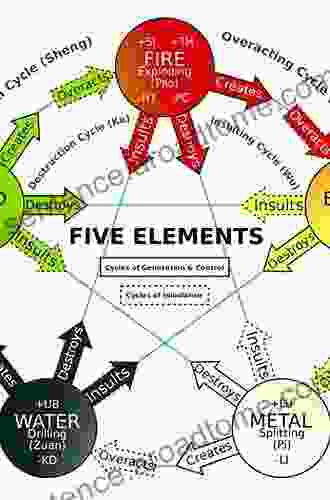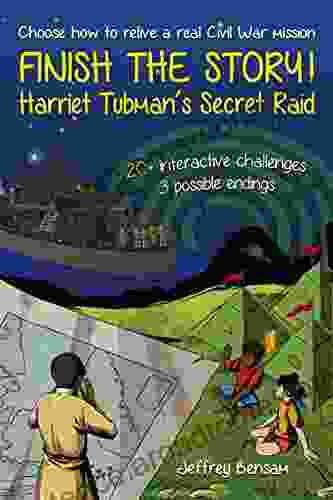Death and Persistence Elements In The Philosophy Of Religion

In the vast tapestry of human thought, the concepts of death and persistence have woven themselves into the very fabric of our being, leaving an ineffaceable mark on our beliefs, values, and aspirations. The philosophy of religion, as an intellectual pursuit, seeks to unravel the intricate threads that connect these seemingly contradictory forces, offering profound insights into the nature of ultimate reality, the meaning of human existence, and the possibility of transcendence.
Death: The Great Equalizer
Death, the ultimate enigma, has been a constant companion throughout human history, leaving no soul untouched. Philosophers and theologians have grappled with its profound implications, seeking to comprehend its nature, its causes, and its ultimate significance. From the existentialists' emphasis on the absurdity of death to the religious belief in an afterlife, the concept of mortality has shaped our understanding of ourselves and our place in the universe.
5 out of 5
| Language | : | English |
| File size | : | 1548 KB |
| Text-to-Speech | : | Enabled |
| Screen Reader | : | Supported |
| Enhanced typesetting | : | Enabled |
| Word Wise | : | Enabled |
| Print length | : | 56 pages |
| X-Ray for textbooks | : | Enabled |
The哲学of death has explored various perspectives on the nature of mortality. Some philosophers, such as Epicurus, have argued that death is simply the cessation of consciousness, a natural end to our finite existence. Others, like Heidegger, have emphasized the existential significance of death, viewing it as a fundamental aspect of human being that shapes our very perception of reality.
Religion, with its promise of an afterlife, has offered a counterpoint to the existential angst surrounding death. From the ancient Egyptians' elaborate burial rituals to the Christian belief in resurrection, religious traditions have provided solace and hope in the face of mortality. They posit that death is not the final chapter but rather a transition to a new and eternal existence.
Persistence: Echoes of Eternity
In contrast to the seemingly definitive nature of death, persistence suggests a defiance of oblivion. The concept of persistence encompasses the idea that something of us endures beyond the physical demise of our mortal bodies. This notion has found expression in various forms throughout history, from the ancient belief in reincarnation to the modern scientific exploration of consciousness.
Philosophical inquiries into persistence have centered on the question of personal identity. If our bodies are constantly changing and our memories are fallible, what remains constant that can be considered our true self? Philosophers such as John Locke and David Hume have proposed different theories of personal identity, seeking to unravel the complex relationship between our physical and psychological attributes.
Religion has also grappled with the concept of persistence, offering its own unique perspectives. Many religious traditions posit the existence of an immortal soul that transcends the physical realm. This soul is often believed to be the seat of our consciousness, our memories, and our essential being. The concept of an immortal soul provides a powerful basis for the belief in an afterlife and the possibility of eternal existence.
The Interplay of Death and Persistence
Death and persistence are not mutually exclusive concepts; they are intertwined in a dynamic and often paradoxical relationship. Death, as the end of our physical existence, can serve as a catalyst for spiritual growth and transformation. It can prompt us to reflect on the meaning of our lives, to appreciate the preciousness of our time, and to seek deeper connections with others and with the transcendent.
Conversely, the concept of persistence can mitigate the fear and anxiety associated with death. The belief in an afterlife or in the enduring nature of our consciousness can provide comfort and hope, allowing us to face mortality with a sense of peace and acceptance. It can inspire us to live our lives with purpose and to strive for a legacy that will outlive our physical presence.
The philosophy of religion invites us on an intellectual and spiritual journey to explore the profound concepts of death and persistence. Through rigorous analysis and thoughtful contemplation, we gain deeper insights into the nature of human existence, the enigma of mortality, and the possibility of transcendence. This pursuit not only enriches our understanding of the world around us but also empowers us to navigate the complexities of life and death with greater awareness, resilience, and hope.
In the words of the renowned philosopher William James, "The greatest question that can occupy the mind of man is the nature of the Universe and of the relation between it and himself." The exploration of death and persistence in the philosophy of religion is an essential part of this grand quest, guiding us towards a deeper understanding of ourselves, our place in the cosmos, and the ultimate mysteries that lie beyond our mortal grasp.
Note: This article is intended to provide a general overview of the topic. For a more comprehensive and in-depth exploration, I highly recommend reading the book "Death and Persistence Elements In The Philosophy Of Religion".
5 out of 5
| Language | : | English |
| File size | : | 1548 KB |
| Text-to-Speech | : | Enabled |
| Screen Reader | : | Supported |
| Enhanced typesetting | : | Enabled |
| Word Wise | : | Enabled |
| Print length | : | 56 pages |
| X-Ray for textbooks | : | Enabled |
Do you want to contribute by writing guest posts on this blog?
Please contact us and send us a resume of previous articles that you have written.
 Book
Book Novel
Novel Page
Page Chapter
Chapter Text
Text Story
Story Genre
Genre Reader
Reader Library
Library Paperback
Paperback E-book
E-book Magazine
Magazine Newspaper
Newspaper Paragraph
Paragraph Sentence
Sentence Bookmark
Bookmark Shelf
Shelf Glossary
Glossary Bibliography
Bibliography Foreword
Foreword Preface
Preface Synopsis
Synopsis Annotation
Annotation Footnote
Footnote Manuscript
Manuscript Scroll
Scroll Codex
Codex Tome
Tome Bestseller
Bestseller Classics
Classics Library card
Library card Narrative
Narrative Biography
Biography Autobiography
Autobiography Memoir
Memoir Reference
Reference Encyclopedia
Encyclopedia Jane C Duckworth
Jane C Duckworth Jeff Armstrong
Jeff Armstrong James Thurber
James Thurber Jeanne Guillemin
Jeanne Guillemin Jana Riley
Jana Riley James H Baxter
James H Baxter Bryan Anderson
Bryan Anderson Jan Tommy Gravdahl
Jan Tommy Gravdahl Jamie Goode
Jamie Goode Janice Janoski
Janice Janoski James L Williams
James L Williams Test Author
Test Author Marilyn Trail Mot Otr Bcn
Marilyn Trail Mot Otr Bcn Marissa Moss
Marissa Moss Jane Fields
Jane Fields Jeffrey Lilly
Jeffrey Lilly Jeff Rosenblum
Jeff Rosenblum Logan King
Logan King Zhijun Li
Zhijun Li Michael Bliss
Michael Bliss
Light bulbAdvertise smarter! Our strategic ad space ensures maximum exposure. Reserve your spot today!

 Joseph FosterThe Ultimate 'World's Best Boss' Trivia Challenge: A Journey Through Dunder...
Joseph FosterThe Ultimate 'World's Best Boss' Trivia Challenge: A Journey Through Dunder...
 Darren BlairLiving Their Faith in New York and London: A Journey of Hope, Inspiration,...
Darren BlairLiving Their Faith in New York and London: A Journey of Hope, Inspiration,...
 Clarence MitchellThe Parent Survival Guide: A Step-by-Step Guide to Raising Happy, Healthy,...
Clarence MitchellThe Parent Survival Guide: A Step-by-Step Guide to Raising Happy, Healthy,... Ryan FosterFollow ·9k
Ryan FosterFollow ·9k José MartíFollow ·6.4k
José MartíFollow ·6.4k Ryūnosuke AkutagawaFollow ·10.8k
Ryūnosuke AkutagawaFollow ·10.8k Thomas PynchonFollow ·18k
Thomas PynchonFollow ·18k Isaiah PowellFollow ·14.5k
Isaiah PowellFollow ·14.5k Kenneth ParkerFollow ·2.2k
Kenneth ParkerFollow ·2.2k Robbie CarterFollow ·3.2k
Robbie CarterFollow ·3.2k Harold PowellFollow ·6k
Harold PowellFollow ·6k
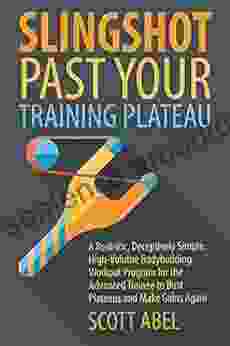
 Davion Powell
Davion PowellUnlock Your Muscular Potential: Discover the...
Are you tired of bodybuilding programs...

 Enrique Blair
Enrique BlairDominate the Pool: Conquer Performance with the DS...
As a swimmer, you...
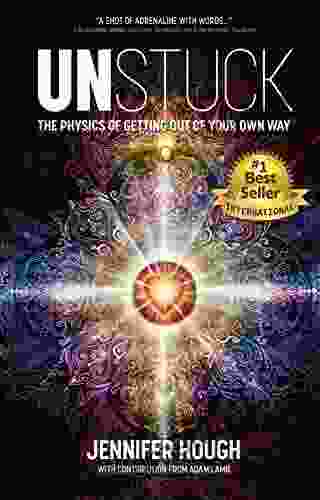
 Christopher Woods
Christopher Woods"The Physics of Getting Out of Your Own Way": A Journey...
Break Free from...
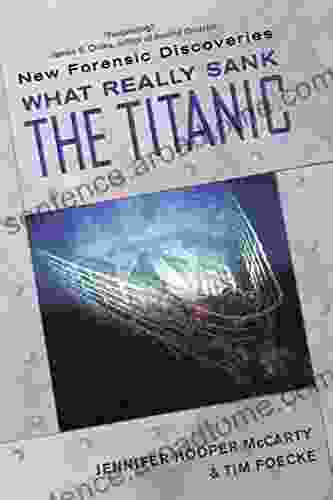
 Milan Kundera
Milan KunderaWhat Really Sank The Titanic: New Forensic Discoveries
The sinking of the RMS...
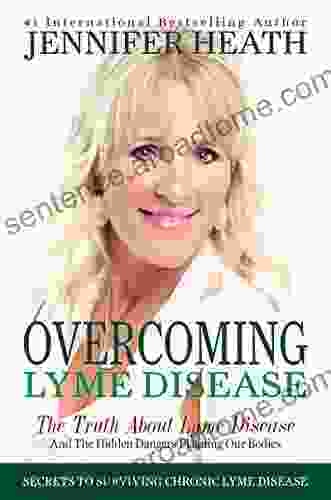
 Ralph Waldo Emerson
Ralph Waldo EmersonUnveiling the Truth: Exposing the Hidden Dangers of Lyme...
In the realm of chronic illnesses, Lyme...
5 out of 5
| Language | : | English |
| File size | : | 1548 KB |
| Text-to-Speech | : | Enabled |
| Screen Reader | : | Supported |
| Enhanced typesetting | : | Enabled |
| Word Wise | : | Enabled |
| Print length | : | 56 pages |
| X-Ray for textbooks | : | Enabled |


